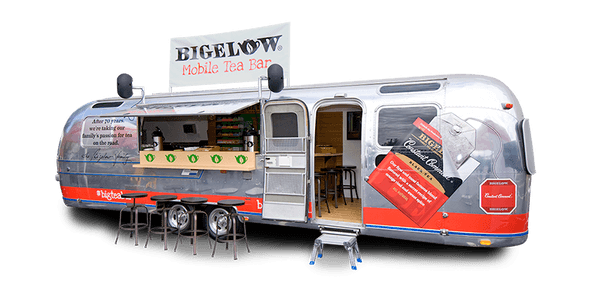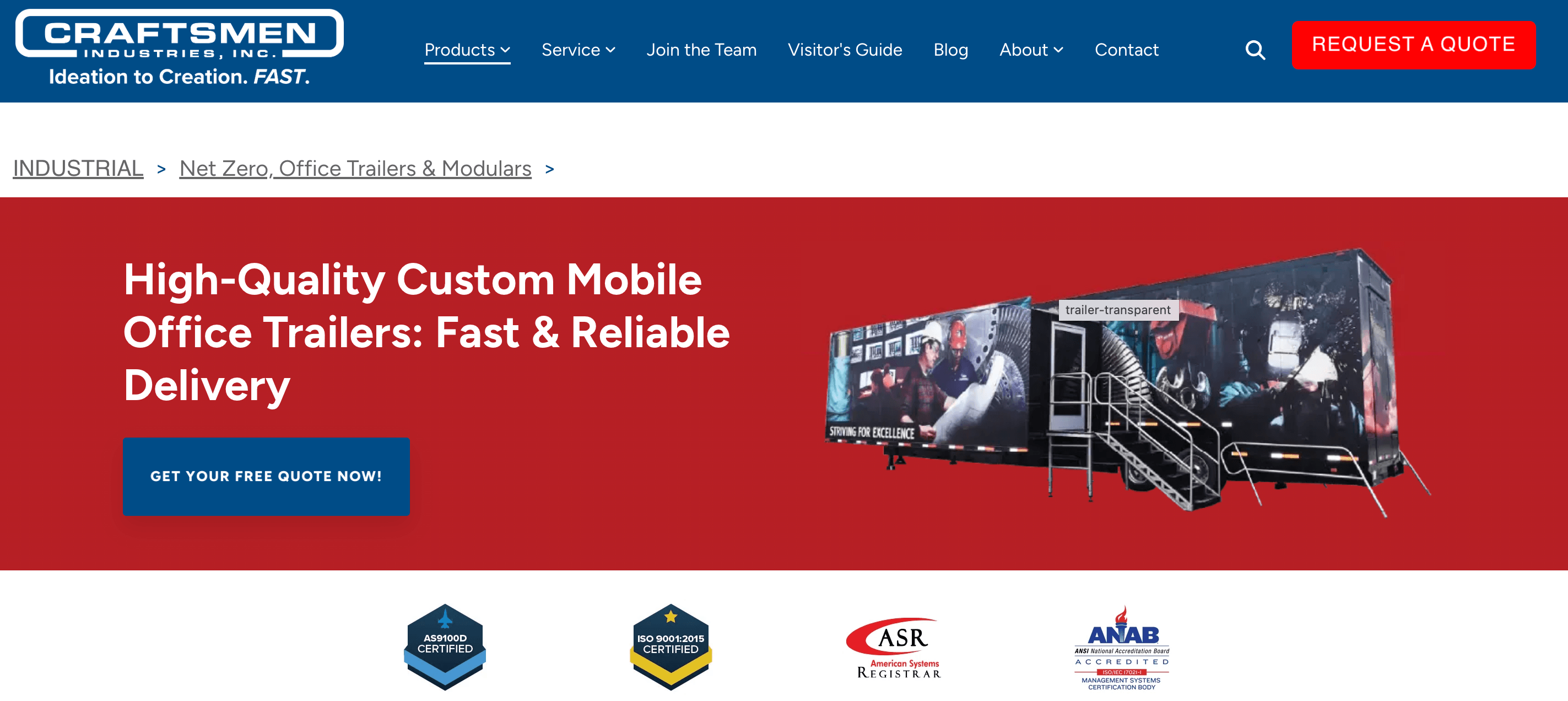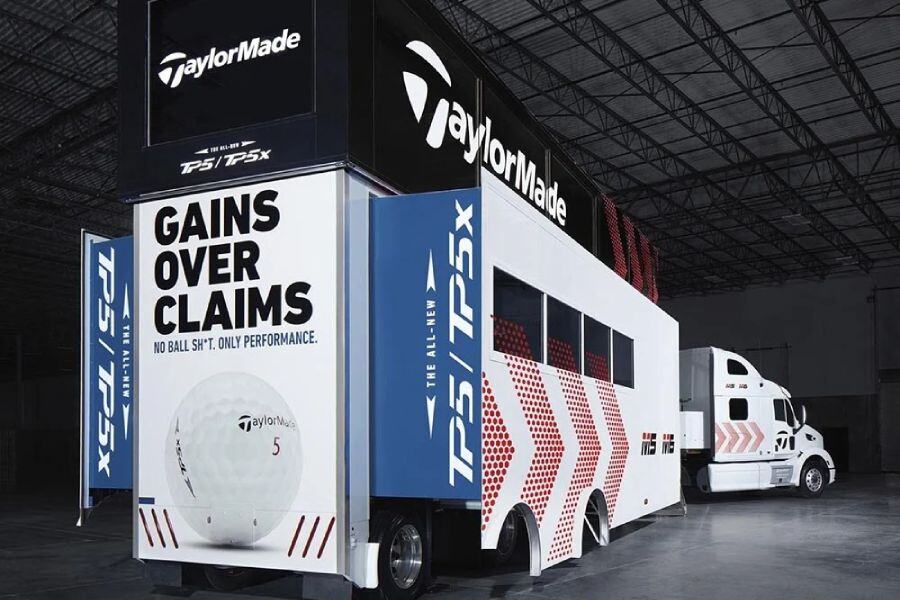Craftsmen Industries Brings Clarity to Custom Mobile Offices with Enhanced Online Guide
The comprehensive product page was recently revamped to serve as an in-depth resource for those in the market for mobile offices.
6 min read
Craftsmen Industries Jul 19, 2025 8:18:08 AM

Experiential marketing is all about creating memorable, hands-on connections between brands and consumers. Traditionally, mobile promotions and experiences, such as branded trailers, have delivered rich, multi-sensory engagements that foster direct human interaction. However, with the rise of Mobile XR/VR, brands can now offer immersive digital interactions that are scalable and quickly deployable.
So, how do these two approaches truly compare? XR/VR excels in delivering cutting-edge virtual experiences, while traditional units shine in physical presence and tactile connection. At Craftsmen Industries, we craft custom mobile units that blend these strengths, helping brands create unforgettable activations anywhere.
The realm of Mobile XR/VR brings the cutting-edge technology of virtual and extended reality into mobile marketing environments, making immersive digital experiences accessible anywhere.
Mobile XR/VR setups often include portable VR headsets paired with custom-designed trailers or pop-ups equipped with XR-ready technology. These trailers serve as mobile "experience hubs" where users can don headsets to explore virtual product demos, gamified brand environments, or augmented reality overlays, all while on the move.
This technological approach enables marketers to offer experiential campaigns that scale quickly and deliver novel, memorable interactions beyond what traditional units can offer. However, it comes with technical and logistical complexities that must be carefully managed.
Before the digital wave, traditional experiential trailers, such as branded trailers, mobile showrooms, and pop-up activation stages, dominated physical engagement. These units rely on tactile, sensory-driven brand activations that foster direct human-to-human connections and touchpoint-rich environments.
While traditional units may require more space, time for setup, and staffing, their proven ability to build emotional connections and sensory memories makes them an indispensable tool in experiential marketing.
Understanding how audiences engage differently with mobile XR/VR versus traditional experiential units is fundamental for marketers aiming to optimize impact.
Mobile XR/VR engages users primarily through visual and cognitive immersion. The headset experience reduces outside distractions, creating a deep sense of presence within virtual spaces. However, the tactile and social elements are limited compared to physical environments.
In contrast, traditional experiential units rely on multisensory inputs, including touch, smell, sound, and direct interaction with brand ambassadors, which can lead to stronger emotional imprints and enhanced memory retention.
|
Factor |
Mobile XR/VR |
Traditional Experiential Units |
|
Sensory Depth |
Primarily visual/auditory immersion |
Multi-sensory (touch, smell, sound) |
|
Emotional Impact |
High due to immersion, but isolated |
High due to social and physical contact |
|
Memory Retention |
Strong visual memory |
Strong multi-sensory memory |
|
Dwell Time |
Can be controlled and gamified |
Depends on physical comfort and staff |
|
Social Interaction |
Limited to single users or remote users |
Direct, in-person engagement |
While XR offers a futuristic and novel experience, traditional units continue to excel at fostering direct emotional bonds through physical presence. Choosing the correct mode depends largely on brand goals and audience preferences.
Deploying either mobile XR/VR units or traditional experiential units involves unique logistical and financial considerations.
|
Cost Aspect |
Mobile XR/VR |
Traditional Experiential Units |
|
Initial Investment |
High-tech hardware/software |
Fabrication, vehicle purchase |
|
Staffing |
Technical support specialists |
Event staff, brand ambassadors |
|
Maintenance |
Device upkeep, software updates |
Trailer repair, fuel, cleaning |
|
Deployment Speed |
Fast, digital content easily updated |
Slower, physical logistics involved |
|
Scalability |
Easily scaled with replicas |
Limited by physical unit availability |
Both approaches require substantial investment but differ in ongoing costs and scalability. Mobile XR/VR may reduce transport and staff expenses but increase tech overhead, while traditional units have higher operational costs but a proven return on engagement.
Forward-thinking brands are increasingly adopting hybrid models that merge XR/VR technologies within traditional mobile experiential units, creating "phygital" experiences that engage users physically and digitally.
By combining tactile brand presence with immersive digital innovation, hybrid units deliver memorable, adaptable campaigns that appeal to diverse audiences and budget ranges.
Brands across industries are leveraging mobile XR/VR, traditional units, or hybrids to meet evolving consumer expectations and maximize ROI.
Post-pandemic shifts accelerated the adoption of mobile XR/VR to navigate event restrictions, but traditional units remain essential for tactile, in-person activations. Most effective campaigns blend both approaches, tailored by clear goals and audience insights.
The future of experiential marketing blends technological innovation with sustainable mobile fabrication.
Craftsmen Industries stays at the forefront by integrating these advancements into custom mobile units that meet next-gen brand activation demands.
At Craftsmen Industries, we specialize in designing and fabricating both traditional mobile experiential units and XR/VR-ready trailers tailored to client needs.
Partnering with Craftsmen Industries means your brand benefits from proven craftsmanship combined with forward-thinking experiential technology.
Choosing between Mobile XR/VR and traditional experiential units depends on your brand's goals, budget, target audience, and activation strategy.
Begin by evaluating your customer journey, the desired emotional impact, and your logistical capabilities. Then work with an experienced fabrication partner, such as Craftsmen Industries, to create a custom unit that brings your brand activation vision to life.
|
Aspect |
Mobile XR/VR |
Traditional Experiential Units |
|
Engagement Style |
Immersive virtual environments |
Physical, multi-sensory interactions |
|
Setup & Deployment |
Technology-driven, faster setup |
Heavy fabrication, longer setup time |
|
Staff Requirements |
Technical specialists |
Brand ambassadors and event staff |
|
Cost Factors |
Hardware/software costs, lower transport |
Fabrication, fuel, and maintenance |
|
Scalability |
Easily replicated digital content |
Limited by physical trailer availability |
|
Emotional Connection |
High cognitive immersion |
Strong social and sensory emotional bonds |
|
Maintenance |
Software updates, device sanitation |
Physical repairs, cleaning, and HVAC upkeep |
|
Flexibility |
Rapid content updates |
Custom interiors but less dynamic content |
|
Ideal Use Cases |
Virtual demos, gamified product tours |
Hands-on product trials, live demos |
|
Sustainability |
Energy usage for electronics |
Fuel consumption and materials use |
Yes, many XR/VR experiences can run offline if the content is pre-loaded on the system; however, internet access enhances interactivity and enables real-time updates.
Proper device sanitation protocols, including the use of UV light cleaning and disposable covers, are standard practice to maintain hygiene during activations.
No, traditional units continue to hold value due to their sensory richness and direct human interaction. Many brands combine both approaches.
With proper maintenance, traditional trailers can last 10 years or more; XR hardware, on the other hand, may require more frequent upgrades (every 2-3 years) to keep pace with technological advancements.
Highly customizable interiors, exterior wraps, and integrated technology can be tailored to brand specifications, just like traditional trailers.
Experiential marketing is evolving rapidly, and selecting the proper activation platform can significantly impact the success of your campaign. Whether you're drawn to the immersive possibilities of Mobile XR/VR or the proven impact of Traditional Experiential Units, or want the best of both with hybrid models, Craftsmen Industries has the fabrication expertise and innovative solutions to bring your vision to life.
Contact Craftsmen Industries today and let's build an experiential unit that captivates, engages, and converts, wherever your brand takes you.

The comprehensive product page was recently revamped to serve as an in-depth resource for those in the market for mobile offices.

In today’s competitive marketing landscape, businesses use unique strategies to engage consumers and create memorable brand experiences. Experiential...

Marketing is one of the most important aspects of running a successful business. Marketing brings awareness to your products or services, which can...